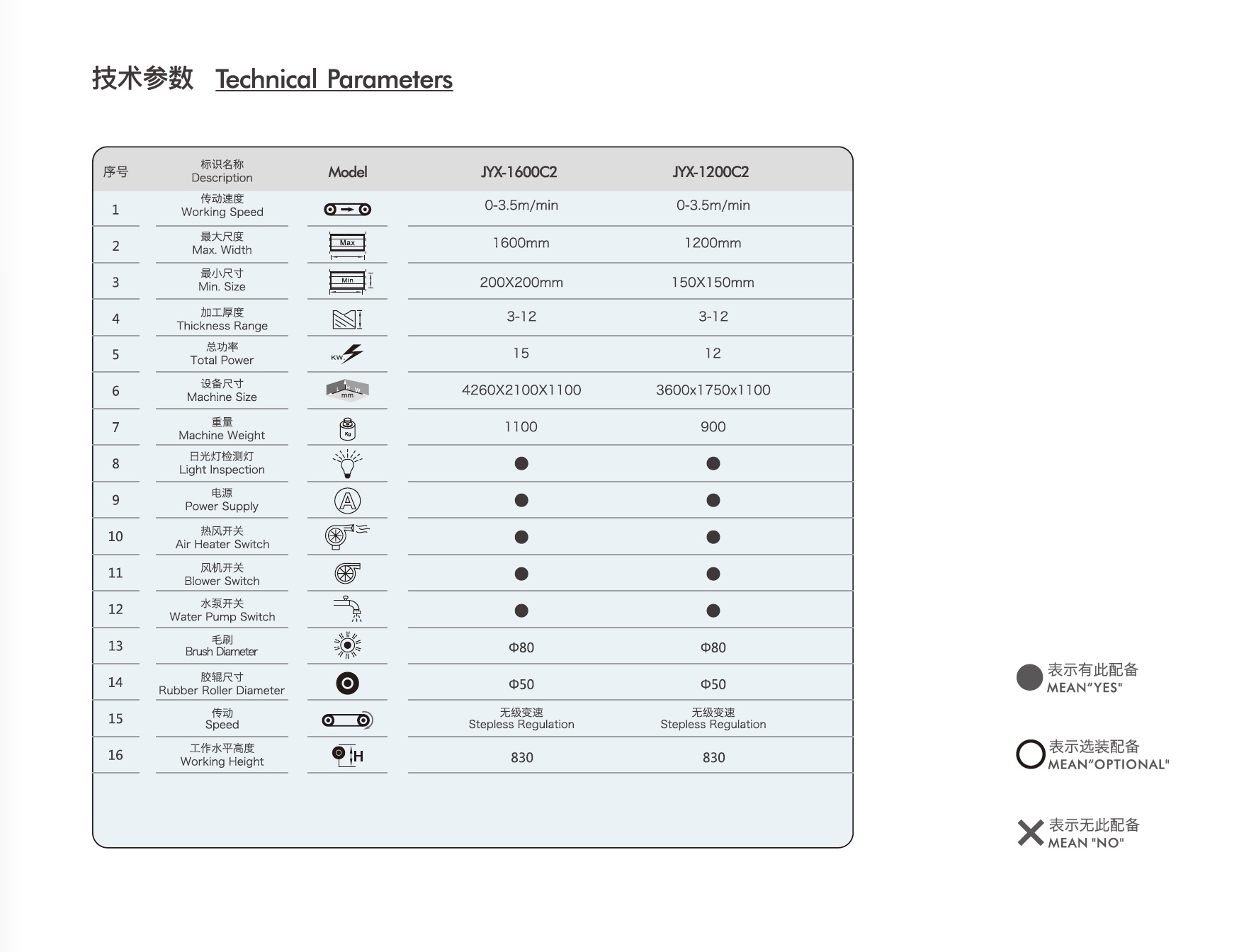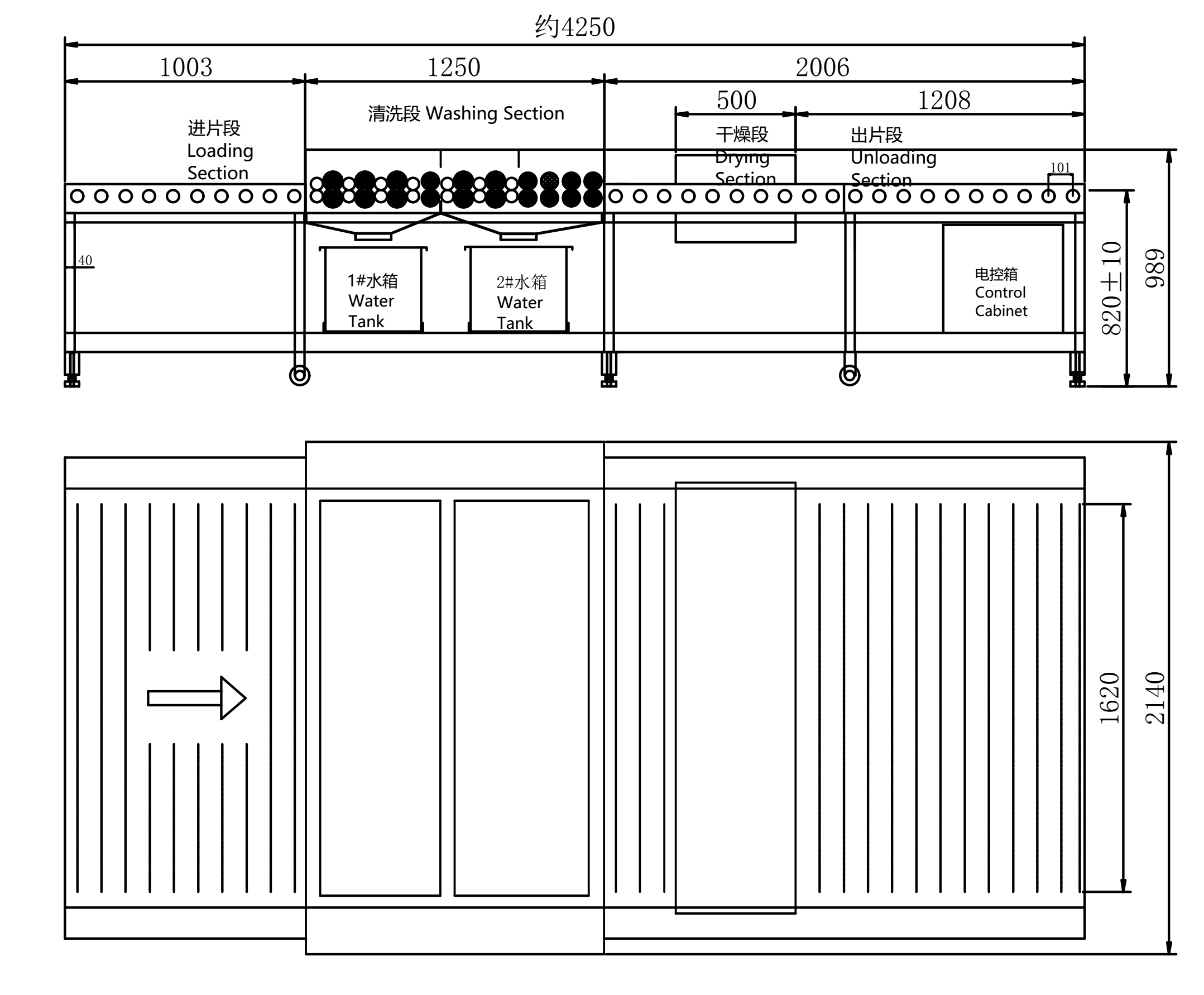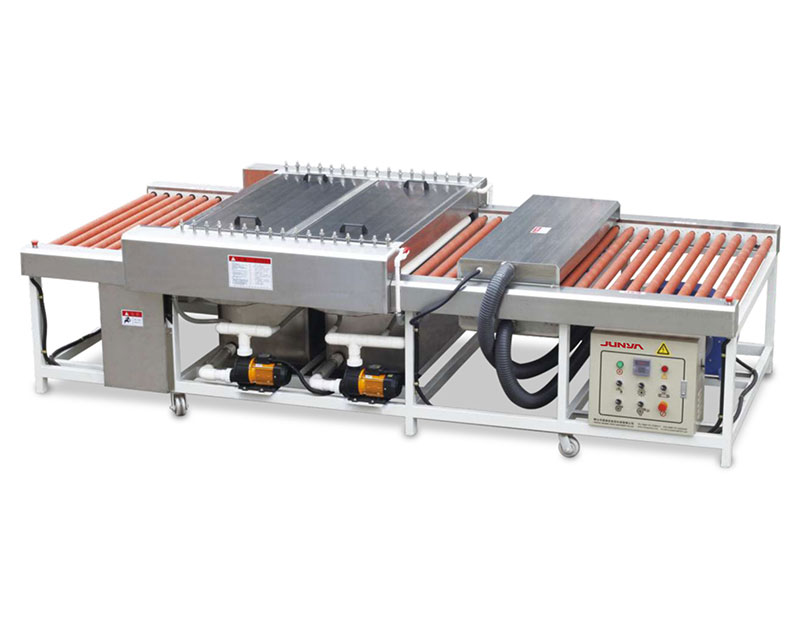PRODUCT
JYX-1600C2 GLASS WASHING MACHINE
1.Horizontal glass washing machine is used for flat glass washingand drying.
2. The machine mainly consists of loading section, washing section, drying section and unloading section.
3. Main drive is chain drive and stepless speed regulation
4. The machine is designed as two-step washing and equipped with two water tanks and high pressure pump.
5. The machine has five pairs of brushes and four pairs of sponge rollers.
I.Structure Features
1.1Horizontal glass washing machine is for washing and drying flat glass, which is applied for edged glass, glass before packing, glass before and after screen printing.
1.2The machine mainly consists of loading section, washing section, drying section and unloading section.
1.3Main drive is chain drive,speedless speed adjustment.
1.4All protective covers, metal panels are made of stainless-steel material.
1.5Water tanks are welded with SS material, and have filtering mesh.
1.6Transmitting rubber rollers of the machine use top-grade nitrile rubber (Full cover of vulcanized rubber).
1.7The machine has 2 stage washing with 2 water tanks and high-pressure water pump.
1.8The machine has five pairs of brushes, four pairs of sponge rollers and two water tanks.
1.9The machine has wide heating section (500mm)with centrifugal fan.
1.10All bearings on the machines are customized to avoid problem of grinding roller shaft and change bearing frequently.The machine has separated aluminum frame for sponge roller changing convenience.
1.11Working Environment: ordinary workshops or dust-free workshops
1.12Machine noise level: less than 85DB; Measuring Method: test at 1m distance from loading and unloading section.
1.13Safety certificate standard: 3C standard.
II.Technical Parameters

III.Test and Acceptance Standard
Test and Acceptance Standard: referring to GB/T1.1-2009 standard, check the glass with black background and lamps from glass vertical direction, there should no water mark, no roller mark, no scratch on glass, and glass should be dry, not hit each other and no transmission deviation.
IV. Machine Layout

